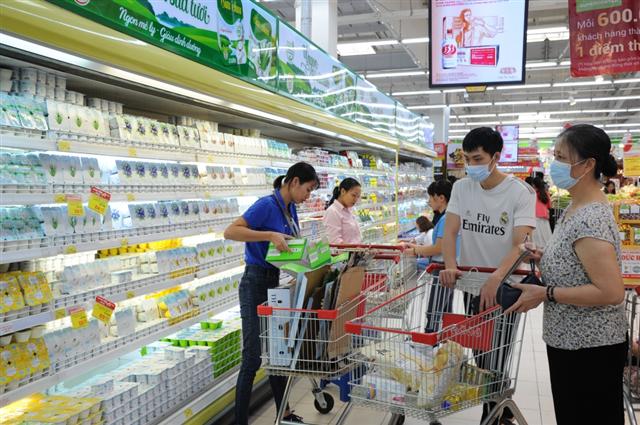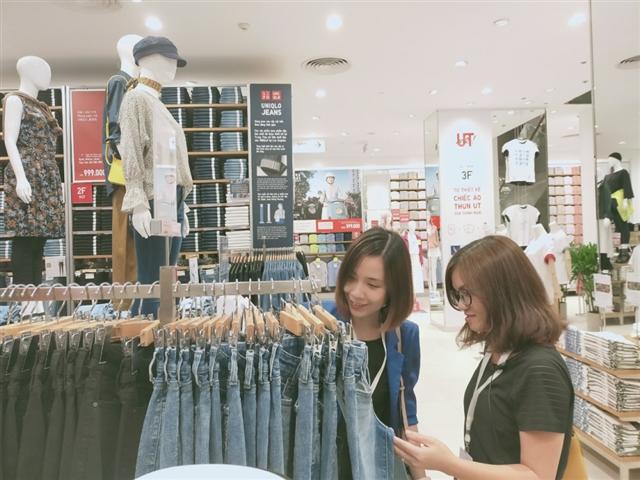Retail sector keeps up with shifting consumer trends
Retail sector keeps up with shifting consumer trends
The Covid-19 pandemic has posed many challenges and difficulties for the retail sector, but also offered opportunities for transformation.
|
Great attractiveness
Vietnam has become one of the most attractive retail markets globally thanks to its large population and consumer demand, especially for essential goods.
The Covid-19 pandemic has changed Vietnamese consumer habits, resulting in a greater focus on health and wellness as well as a broad-based shift to e-commerce. According to forecasts, Vietnam’s e-commerce will continue to grow at double-digit pace over the coming six years.
Despite growing e-commerce penetration, Vietnam’s overall retail landscape remains predominantly offline, with brick-and-mortar stores and distribution channels still accounting for the majority of sales turnover.
Japanese clothing retailer, Uniqlo, is a typical example. After conquering consumers with the first Hanoi store located at Vincom Center Pham Ngoc Thach in Dong Da District, Uniqlo announced expansion in the capital city with two new stores located at Vincom Center Metropolis and Aeon Mall Long Bien. Together with three stores in Ho Chi Minh City, the Japanese clothing retailer has six stores in Vietnam. Uniqlo said its sales turnover has increased by 40 percent since its Vietnam store opening. Product availability in retail stores provide consumers with an experience that online shopping cannot deliver.
Promoting omni-channel shopping
|
Multi-channel shopping (omni-channel shopping) is the practice of offering consumers a variety of platforms from which to purchase products, both online and offline.
The Covid-19 pandemic has accelerated Vietnam’s shift towards omni-channel purchasing behavior and retailers should capitalize on this momentum to drive expansion and increase penetration rates in the post-pandemic period. Several non-traditional retail players seized the opportunity to make their foray into the market. For example, ride-hailing player Grab launched its grocery e-commerce platform, GrabMart, in Vietnam. The FPT Digital Retail Joint Stock Company (FPT Retail) adopted a multi-channel sales strategy, including partnering with strong mobile phone brands in electronic distribution (Xiaomi, Honor and Realme), cooperating with other retailers (Nguyen Kim) to provide new product categories, and promoting cross-border shopping through its partnership with Fado.
Vu Vinh Phu, former chairman of the Hanoi Supermarket Association, said the Covid-19 pandemic has posed difficulties for the retail sector, but also provided opportunities for businesses to drive transformation. To dominate the market, product quality must be a top priority, especially in supermarkets and commercial centers in which consumers often have the highest confidence. In addition, businesses need to grasp the trend and promote omni-channel shopping to meet increasing consumer demand.
| Higher levels of omni-channel purchasing behavior have been observed as a result of the Covid-19 outbreak, as consumers look to stock up on groceries and daily necessities. Retailers should capitalize on this momentum to drive expansion and increase penetration rates in the post-pandemic period. |






















